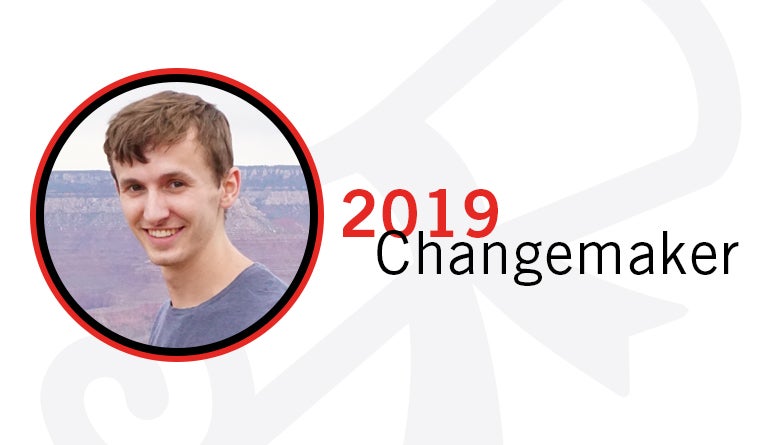As a student at Rensselaer Polytechnic Institute, Douglas Wich allowed his inquisitiveness to guide him, and that has made all the difference.
In his first year on campus, spurred on by his curiosity, Wich visited the Gilbert Laboratory in the School of Engineering at Rensselaer, which focuses on developing biomaterials for spinal cord repair. While there, he learned that undergraduate research positions occasionally opened up.
“I had one of those moments where I thought, ‘I don’t know if I’ll have this chance again,’” Wich said.
He decided to go for it.
Wich started reading about the lab’s research and visiting Ryan Gilbert, professor of biomedical engineering, during office hours so he could better understand the work the group was doing.
A year later, Wich had secured a position with the lab and was working alongside the team.
“I was able to do a lot of hands-on things. I got to do a lot of fluorescent imaging, cell staining, as well as some image analysis,” Wich said. “The work has been not only fun, but also beneficial in helping me figure out what I want to do going forward in life.”
Wich will graduate in May with a degree in biomedical engineering.
That research was published in Wich’s junior year, and he was a co-author on the paper titled “Electrospun fiber surface nanotopography influences astrocyte-mediated neurite outgrowth,” published in Biomedical Materials in June 2018.
Wich said he’s grateful for the opportunity to work on the research—and not just because co-authoring an academic article as an undergraduate is an exceptional professional achievement. He appreciated the valuable lessons he learned about solving problems during his time in the Gilbert Lab.
“A big part of research is trying something out, running into a problem, and trying to think how can I do this differently? Or how can we get over this obstacle?” he said.
His practice tackling these questions will serve him well as he begins his career with Triton Systems in Massachusetts.
Wich says his position at the company will allow him to develop innovative solutions to a number of global problems.
“Being able to work on biomedical problems to make the lives of people better is something that will be very interesting, challenging, but also fulfilling,” he said.


